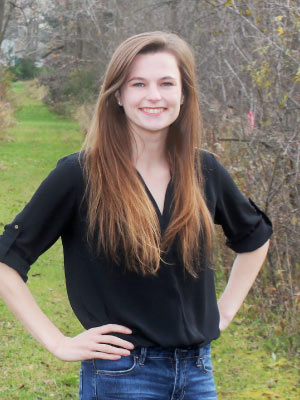
From a young age, Aryn Swann knew she wanted to save the world.
Her superpower? Environmental science. “I was in seventh grade, and I told my parents I wanted to be an environmental scientist,” Swann said. “I wanted to save the world, and I was very determined.”
Her pragmatic parents, who appreciated Swann’s dream of saving the world, pointed her toward the medical field — citing a seemingly more secure job market that also helps people. Swann agreed, until halfway through her undergraduate degree at Alverno College when she knew a career as a nurse just wasn’t for her. She changed her major to environmental science.
Upon graduating, Swann worked with a nonprofit organization in Milwaukee to provide environmental education to children and other groups. As she progressed in her career, Swann found herself working in the biogas and energy production industries — collaborating with regional farmers to help implement sustainable agriculture practices.
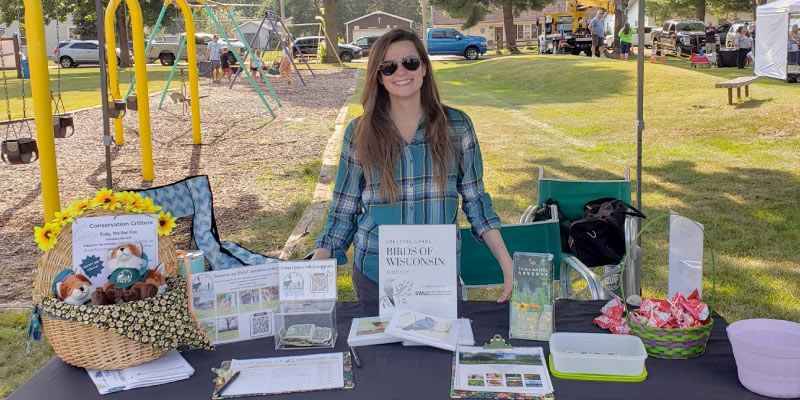
Swann loved this work. She was positively impacting the environment and connecting with communities to make it happen. However, to see the kind of advancement she wanted in her career, Swann knew she needed to get her master’s degree. Cue the Nelson Institute’s environment and conservation (EC) program.

“The program, being 15 months long, was very appealing to me because I knew I wanted a career change, and I wanted to dive into it right away,” Swann said.
She reached out to Meghan Kautzer, assistant director of environmental professional programs, for more information about the program. The two hit it off right away, bonding over their love of cats and speed-talking. “We just bounced off one another!” Swann laughed, “I was really excited to connect with her and learn about the EC program.”
As Swann dove into her master’s degree, she participated in a variety of hands-on experiences. One of her class projects involved partnering with the National Institute of Ecology (NIE) in South Korea to develop a conservation plan for the Amur goral, an endangered species of goat. Swann’s group learned about the challenges the Amur goral faced in South Korea — climate change, urban sprawl, and vehicular collisions — and created a roadmap to protect the goats from extinction which is now being implemented by the NIE.
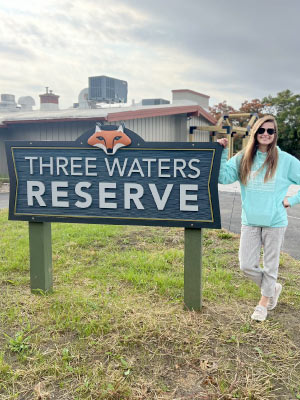
“Getting to learn about the Amur goral and developing a conservation plan to protect the animal was a really amazing hands-on experience. We learned not just from our professors, but also from our hosts that worked with us on that project,” Swann said. “All of the professors have done so much in the real world and have been on the forefront of so many different projects, initiatives, and research across the globe. I don’t think you can learn from a better group of people who are actively out there doing things in the field.”
Near the end of the program, each EC student partners with a leading organization to create a conservation project. Swann worked with Kautzer to pair up with Southern Wisconsin Land Conservancy’s flagship nature reserve, Three Waters Reserve, where she was put into real-world scenarios like attending zoning meetings, developing strategic plans, and collaborating with conservation organizations. “It was fantastic to be able to build and develop actual skills that were applicable to the real world, versus just learning them from a textbook,” Swann explained.
When she graduated, her host organization asked her to throw her hat in the ring as executive director of the Southern Wisconsin Land Conservancy (SWLC). She interviewed and earned the title. “It’s been the most amazing experience working with people that are just so passionate and driven,” she said.
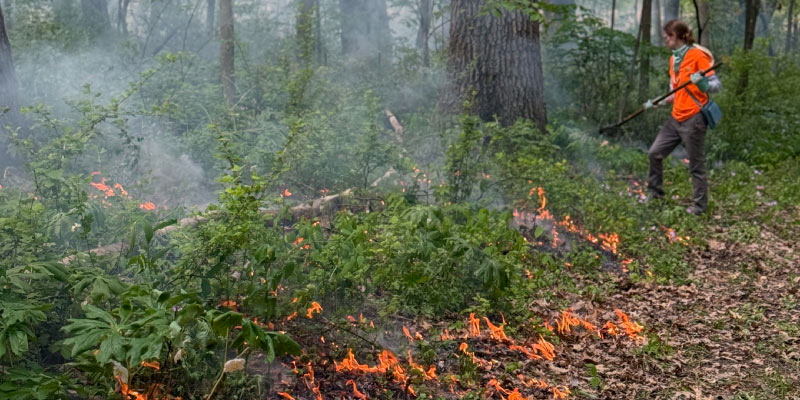
Located in Brodhead, Wisconsin, SWLC works to protect and conserve Wisconsin’s natural spaces for the benefit of all living things. They facilitate restoration projects, raise awareness about biodiversity, host educational events, and work with farmers to develop sustainable agricultural practices. To help with these efforts, the conservation collective housed at Three Waters Reserve recruits interns from local high schools and colleges, including current Nelson Institute graduate students. “Every student that we bring in is inspirational in their own way, and they’re so dedicated and driven. Having them be on our team and getting to be a part of our work is really amazing,” Swann said.
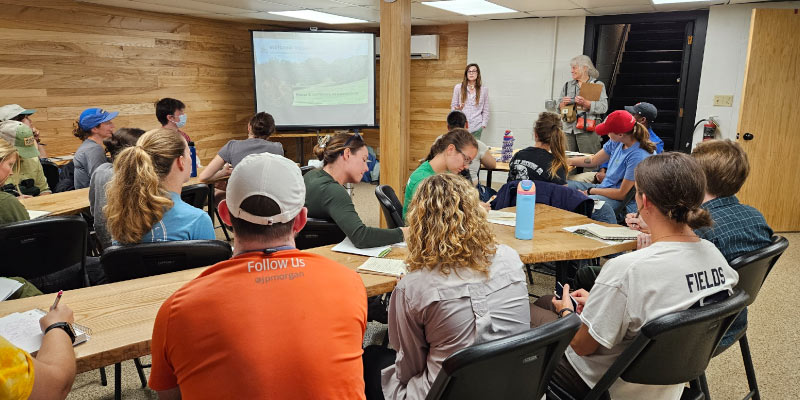
Her passion for helping the next generation of environmental scientists goes beyond just her work at SWLC as Swann recently participated in an EPP alumni panel to speak to current Nelson students and answer their questions about what a career in the environment can look like. Her advice? Get out in the world, take risks, and gain hands-on experience.
It’s safe to say that Swann’s seventh grade self is more than satisfied with the career she had always dreamed of for herself. “I think it’s even better than I ever thought it could have been.”